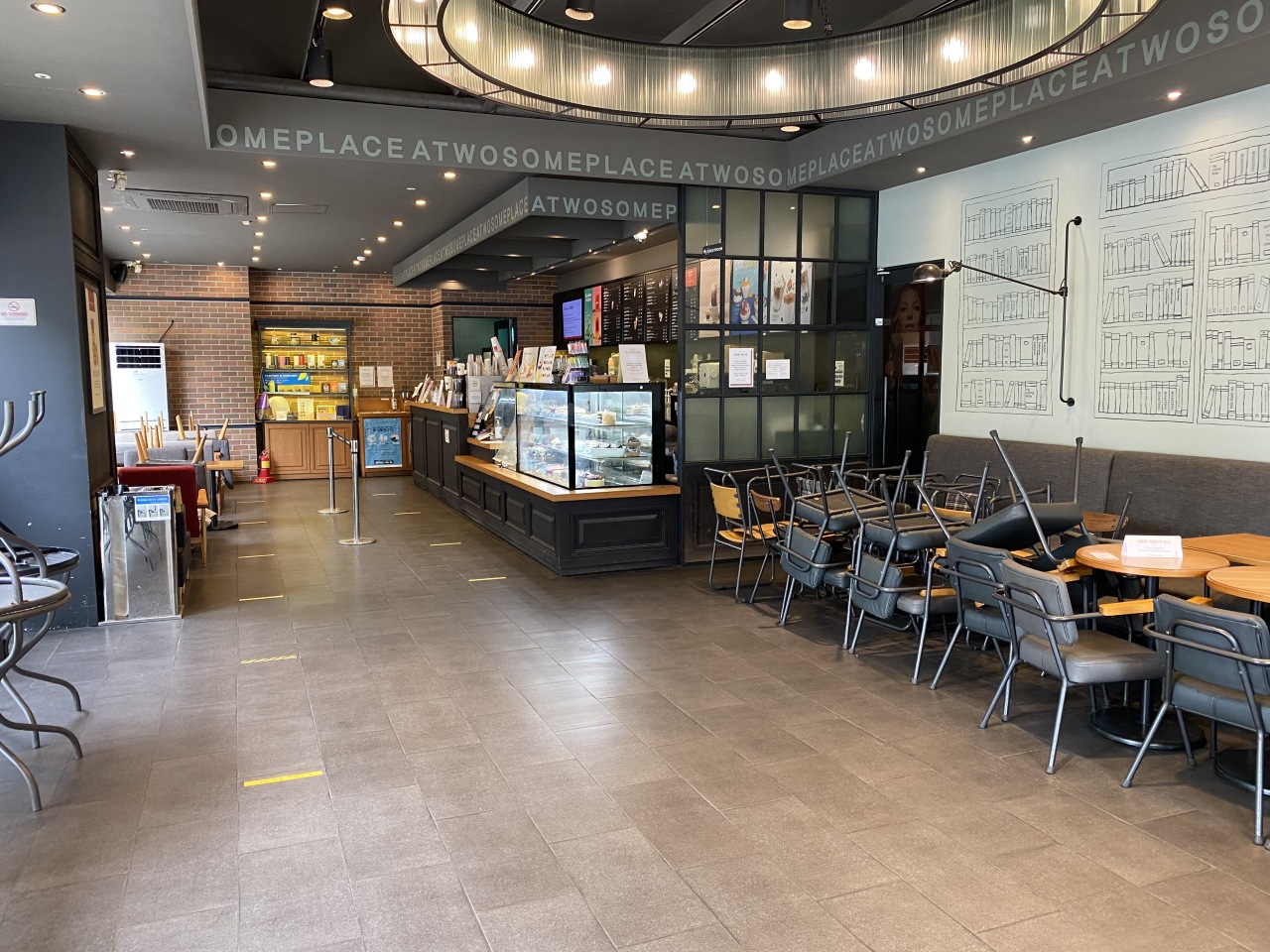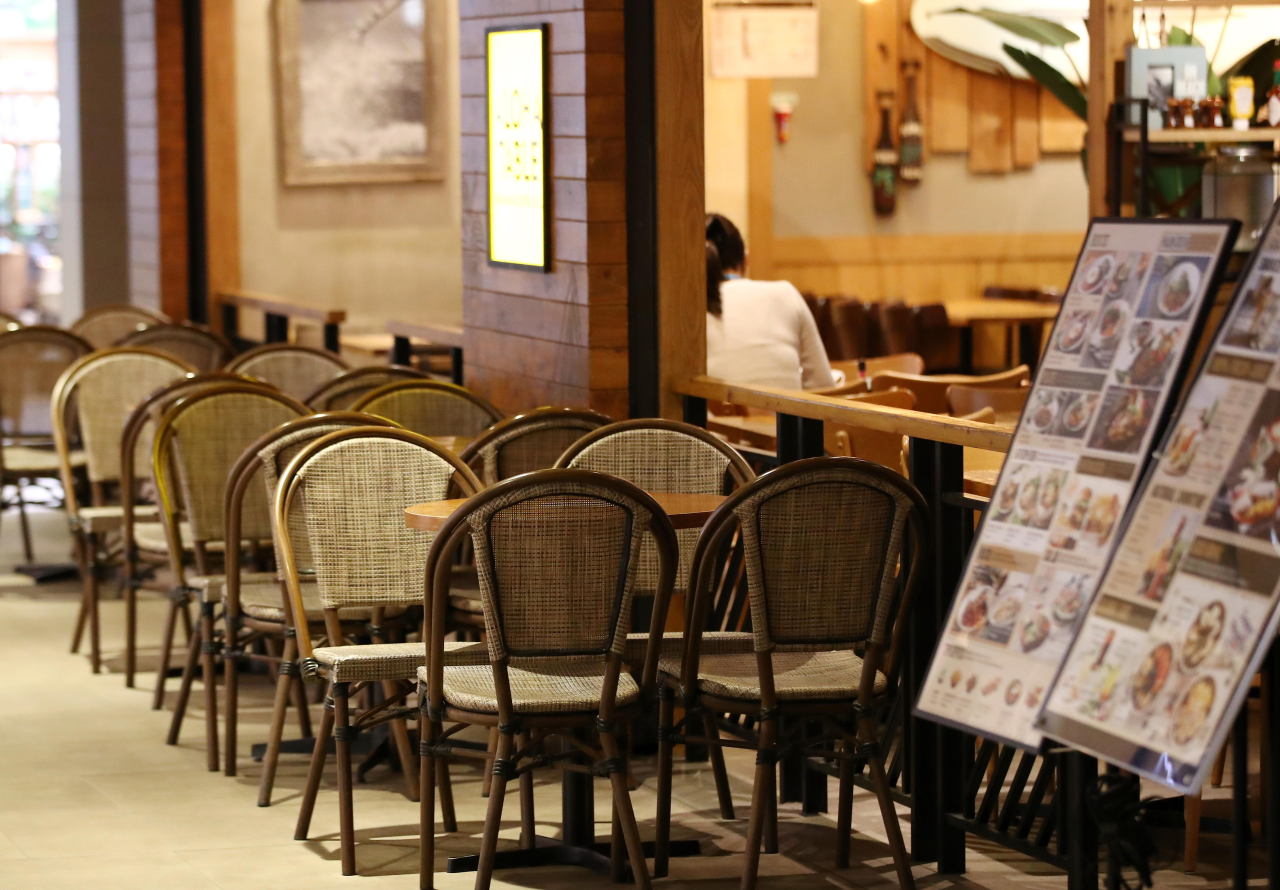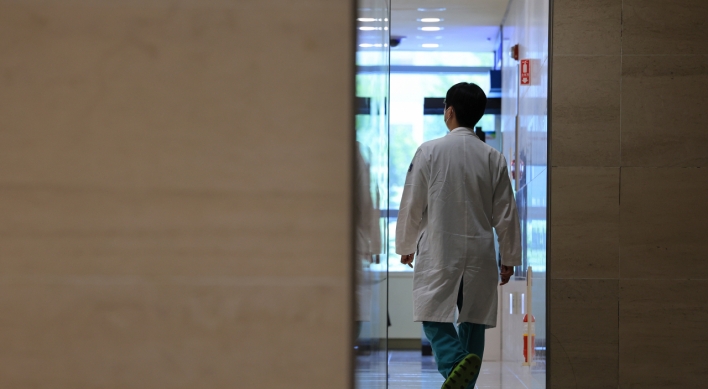[From the Scene] ‘We understand, but it’s life or death for us’
Restaurants bear the brunt of stronger social distancing rules
By Jo He-rimPublished : Aug. 31, 2020 - 18:20

The owner of a 24-hour eatery in Mapo, Seoul, sat hopelessly in her near-empty kimchi stew restaurant, which on other days had bustled with customers around the clock.
Lee, 50, said the “Level 2.5” social distancing rules had cut the number of customers in half, one day after they were imposed to curb a spike in COVID-19 infections. This includes a weeklong ban on food and drink consumption inside large chain cafes in Seoul and Gyeonggi Province and the forced closing of restaurants at 9 p.m.
“It (the COVID-19 pandemic) is not the government’s fault, and it is a natural disaster. I understand that, and do follow the regulations, but I cannot deny that these regulations have created a life or death situation for small entrepreneurs like me,” Lee told The Korea Herald.
“The government makes the decision, they issue an announcement, but do not give any guidelines or give support to business operators, and it is all up to us to endure the side effects.”
A day into the announcement, big franchise coffee shops have put their tables away in corners and put up signs informing customers that they can only order takeout.
In announcing the measures on Friday, the government stopped short of imposing Level 3 social distancing rules, a de facto lockdown, saying that would be the “last card” in light of the impact it would have on society and the economy.
Under the stricter social distancing regulations, sales at coffee chains have also declined.
“We are seeing 40 percent less customers visiting than normal times. The other 60 percent still come for takeout orders,” an employee of A Twosome Place, a coffee franchise operated by CJ Group, in Mapo, Seoul, told The Korea Herald.

The new restrictions, however, did not entirely curtail the demand from those who use cafes because they need somewhere to work and study.
Privately owned cafes were largely unaffected, and people were seen sitting inside with their masks off. The situation was similar for franchise bakeries such as Dunkin’ Donuts and Krispy Kreme, as the restrictions apply only to businesses categorized as franchise cafes.
People were also seen turning to convenience stores as an alternative to dining out late at night.
Recognizing the heightened risk, GS25, a convenience store chain, said it will ban eating inside its stores in the Seoul metropolitan area.
The convenience store franchise also said it will prohibit store operators in the region from placing tables outside between 9 p.m. and 5 a.m.
Meanwhile, popular online delivery platforms were taking steps to help small restaurants.
Baedal Minjok, the No. 1 delivery platform by market share, announced Monday that it wanted to share the burden facing small-restaurant owners while also discouraging face-to-face transactions.
“Baemin Order,” the app’s carry out preorder service, has been renamed “Carry Out Preorder” to make it more accessible and user-friendly.
For all orders made via Carry Out Preorder, Baemin said that until the end of this year it will cover the credit card processing fees that business owners have to pay card issuers -- about 3 percent per purchase -- as a way to lighten the burden.
By Jo He-rim (herim@heraldcorp.com)









![[Kim Seong-kon] Democracy and the future of South Korea](http://res.heraldm.com/phpwas/restmb_idxmake.php?idx=644&simg=/content/image/2024/04/16/20240416050802_0.jpg&u=)









![[Today’s K-pop] Zico drops snippet of collaboration with Jennie](http://res.heraldm.com/phpwas/restmb_idxmake.php?idx=642&simg=/content/image/2024/04/18/20240418050702_0.jpg&u=)